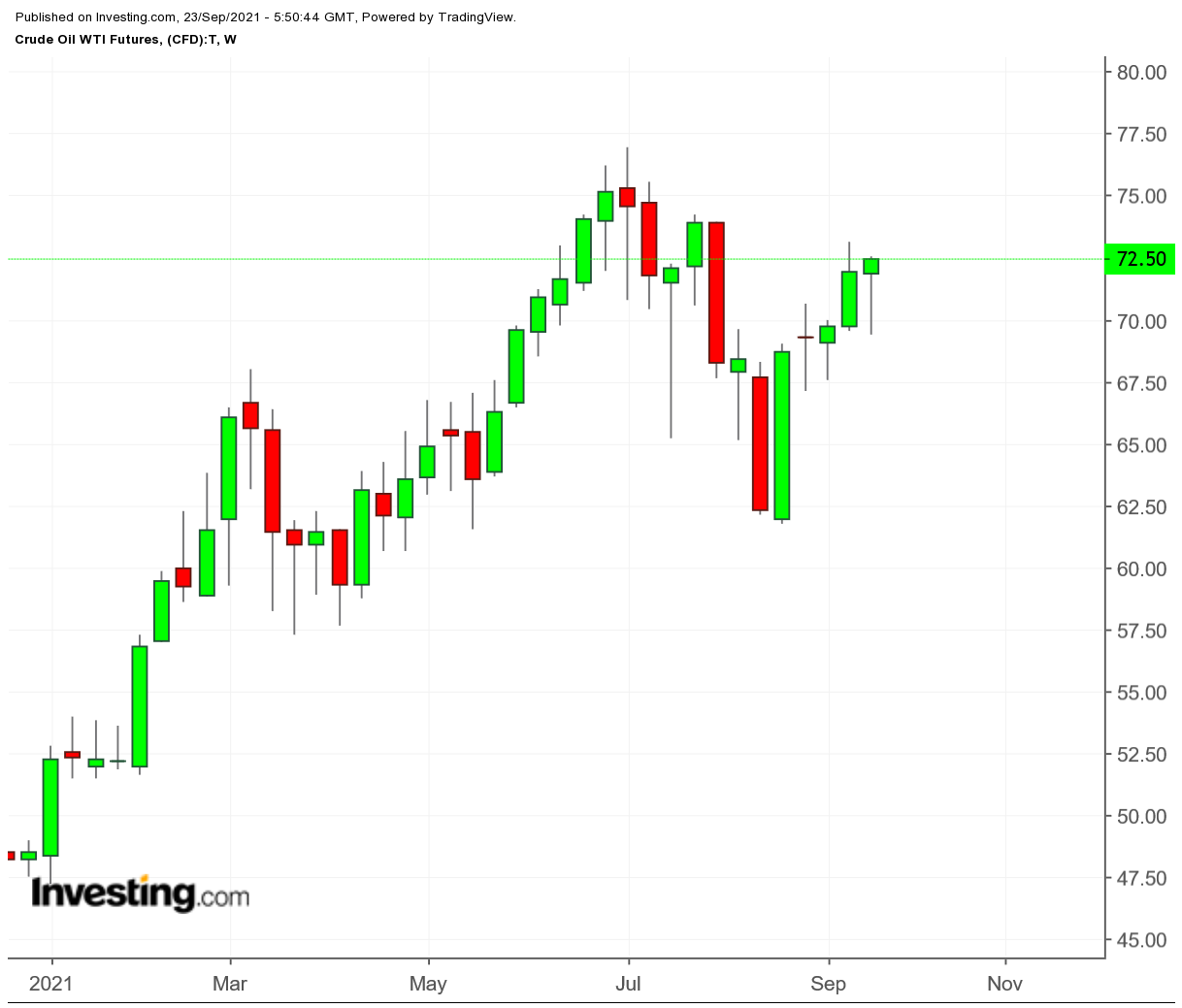Nvidia and TSMC to unveil first domestic wafer for Blackwell chips, Axios reports
Financial markets across the world have lately been trying to determine if China is on the precipice of economic trouble. With one of the Asian country’s largest real estate developers, Evergrande (OTC:EGRNY) (HK:3333), facing a severe liquidity crisis that could lead it to default on interest payments for some of its bonds, the oil market and oil industries need to consider how such trouble could impact them.
That's a key consideration for the energy segment, since in China, the real estate sector accounts for about one fourth of the country’s GDP. That means there is potential for Evergrande’s financial issues to cascade through the entire Chinese economy.

As the Evergrande news broke at the beginning of the week, fear shook global equity markets. Chinese real estate stocks listed on Hong Kong’s exchange saw massive declines on Monday, and the Dow Jones Industrial Index fell by 600 points.
Oil markets were also concerned about the potential fallout, and futures prices dropped on Monday as well. WTI fell 2.3% while Brent tumbled 1.9%.
It is not clear whether Evergrande’s financial woes will spiral into what some predict will be a “Lehman moment,” meaning the start of a massive domino effect that could potentially lead to another great recession. Other analysts believe this problem will remain contained as just an “LTCM moment,” referring to the collapse of the Long Term Capital Management hedge fund in 1998 that scared markets but ultimately created only limited reverberations.
Both events forced the U.S. government and private interests to work on bailouts and regulatory cleanup, but it is expected that such actions should not be a problem in the authoritarian economy of China, though Beijing has been injecting short-term liquidity into its market to help ease concerns.
Most analysts seem to think that the situation with Evergrande is unlikely to reverberate throughout global financial markets to the extent that the Lehman Brothers collapse did. However, that doesn’t mean that the Chinese economy won’t be impacted significantly. If the Chinese economy contracts because of this turmoil, commodities markets—including oil—will be affected.
Indeed, we could see the impact on the global oil market soon, since China is the world’s largest oil importer. Less spending by the Chinese government on infrastructure is already affecting China’s oil imports.
In August, China imported about 10.5 million bpd of crude oil. Even though this number is up from July, it is lower than the same period last year. In fact, China’s average crude oil imports for the first 8 months of 2021 are down 5.7% from the same period in 2020.
If China’s real estate sector contracts significantly, traders should expect to see even lower oil demand growth from China. We could even see a drop in oil demand.
It is likely the Chinese government will intervene to prevent a collapse of its real estate market. Beijing is already putting together a deal that would restructure Evergrande into three separate entities.
According to reporting from Asia Markets, state-owned businesses will back the reconfiguration essentially turning Evergrande into a state-owned venture. Furthermore, we can expect that Chinese media will temper the news to lessen the impact of any negative economic events.
Yet, even if the Chinese government saves the jobs of Evergrande employees and the apartments of its tenants, real estate growth in China will likely become more cautious after this event. Many of Evergrande’s equity owners and foreign investors may come out with nothing.
This will negatively impact the demand on many commodities, oil among them.
